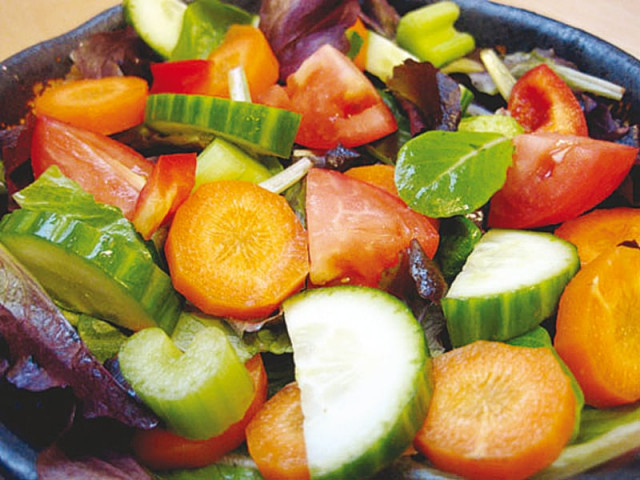Cooking secrets that boost the health-factor of your food
Not only buying healthy food makes it perfect, how you prepare it makes or breaks your nutrient bank

Cooking secrets that boost the health-factor of your food
Heat tomatoes to boost heart health

Heating and cooking lycopene-rich tomatoes instigates a chemical change that makes the heart-healthy nutrient much easier for your body to absorb. Try halving tomatoes lengthwise; arrange on a baking sheet, drizzle with olive oil, and season with your favourite chaat masala. Bake or roast for 15 to 20 minutes, until slightly shrivelled. Adding crushed tomatoes or fresh tomato paste to prep desi curries is also a great way to reap lycopene benefits.
Let garlic breathe to maximise cancer prevention

Cooking it in high temperatures destroys allinase - garlic’s most vital cancer-fighting and immunity-boosting enzyme. After chopping, make sure to let crushed garlic stand for about 10 to 15 minutes before adding it to a sizzling pan or frying in hot oil. This allows the pungent Pakistani staple to generate compounds that dull the damaging effects of heat, suggest scientists at Pennsylvania State University and the National Cancer Institute.
Increase fats to absorb more vitamins

Adding your regular canola oil, olive oil, ghee or another fat source to red, green, orange, and yellow fruits and veggies increases the amount of fat-soluble vitamins, such as A, E, and K. These nutrients boost vision, improve immunity, and protect against stroke and osteoporosis. “Fat acts as a transporter for them,” Cynthia Sass, spokesperson for the American Dietetic Association. A study from the Ohio State University Cancer Centre found that men and women who ate salsa with olive oil absorbed 4.4 times as much lycopene and 2.6 times as much beta-carotene than those who enjoyed plain salsa.
Add lemon juice to broth for extra calcium

If you’re prepping homemade chicken soup or cooking khichri with chicken, it’s smart to add a hint of lemon juice, or tomato to the mix. Pairing a slightly acidic broth with on-the-bone chicken can up the calcium content of your dish by 64 per cent, according to researchers at Harvard University and Beth Hospital in Boston. Lemon juice, basically releases the chicken bone’s calcium more easily. Other research that was referenced in the Harvard study has shown that marinating chicken with an acidic vinegar or lemon based sauce will dramatically increase the calcium content.
Always marinate meat for safer grilling

The high heat needed to grill meats can create carcinogenic compounds called heterocyclic amines (HCAs) but marinating can help. When researchers at Lawrence Livermore National Laboratory in Livermore, CA, soaked chicken breasts in a mixture of brown sugar, olive oil, cider vinegar, garlic, mustard, lemon juice, and salt for four hours, they developed up to 99 per cent fewer HCAs after 20 minutes of grilling than unmarinated chicken did.
Chop larger pieces of produce to keep colds at bay

When you’re slicing and dicing fresh produce for regular saalan or salad, cut it in larger chunks. Lots of small portions expose more of the fruit or vegetable to nutrient-leaching oxygen and light. “A larger cut allows you to hold on to more vitamin C, which helps bolster immunity,” says Roberta Larson Duyff, author of the American Dietetic Association Complete Food and Nutrition Guide. Quarter carrots, potatoes and tomatoes instead of dicing them and slice melons into crescents rather than cubing.
Dress salad or sabzi with herbs to double antioxidants

Adding herbs to your salad or sabzi can more than double its cancer-fighting punch, according to recent Italian research. When compared with regular garden salads made with no added herbs, those featuring dhanya or coriander, podina or mint, oregano and thyme had up to 200 per cent more antioxidants per serving. Spices such as ginger and cumin also sky-rocketed the antioxidant quotient. If you’re not a salad enthusiast, add herb chutneys to your favourite meals or enjoy masaala alu with maithi to up antioxidant levels.
Published in The Express Tribune, May 1st, 2015.
Like Life & Style on Facebook, follow @ETLifeandStyle on Twitter for the latest in fashion, gossip and entertainment.



















COMMENTS
Comments are moderated and generally will be posted if they are on-topic and not abusive.
For more information, please see our Comments FAQ